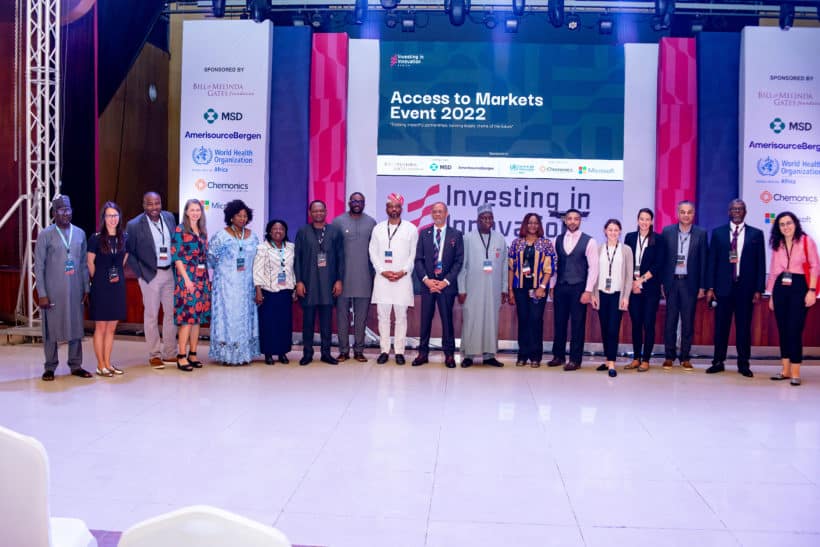
The COVID-19 pandemic showed the world that strong healthcare supply chains are critical to addressing global crises. As the African Development Bank leads the work to bolster African manufacturing, attention must also be paid to strengthening the supply chains that bring health products to people. African-led innovations can modernize supply chains to ensure they are resilient, agile, and responsive to patients’ needs.
Local supply chain start-ups have already proven they can achieve results with very limited resources, attracting the interest of governments and leading healthcare, tech, and supply chain organizations such as Bill & Melinda Gates Foundation, Merck Sharpe & Dohme (MSD), Microsoft, AmerisourceBergen and Chemonics. However, engaging with local start-ups has been difficult for global companies and governments alike; and African-led, women-led, and Francophone-led companies are often most excluded from investment, contracts, and partnerships.
To flip this paradigm, a set of global sponsors recently launched the Investing in Innovation program, selecting 31 leading supply chain innovators from across the continent and providing them with a flexible grant, investment readiness support and introductions to leading customers.
“Investing in Innovation is not an accelerator,” says Salient Advisory’s Malyse Uwase, one of the program’s coordinators, “The continent has many successful accelerator programs already. Instead, we take leading-edge African health tech companies with products and services in the market and introduce them to major customers who can help drive their impact at scale.” Hassan Belkhayat, Co-founder of Southbridge A&I, another of the program’s coordinators, notes that the companies in the programs inaugural cohort are still small, but collectively have impressive reach. “The companies may be start-ups, but their promise is clear. Collectively they’re already distributing medicines, devices, and health care consumables to nearly 25,000 African pharmacies, clinics, and hospitals across the continent.”

Seun Afuye, of Salient Advisory, notes “It’s thrilling to see interest in African healthtech grow. African investors are actively engaged, and investors like the IFC and the US’ Development Finance Corporation are expanding their efforts.” However, despite growing interest from institutional investors, there’s cause for caution: for healthtech companies to succeed at scale, they also need major healthcare customers – who are not connected with local or regional innovations that can accelerate their goals. “Investing in Innovation is meant to bridge that gap – to help innovators and health care giants across the public and private sectors build relationships, that over time can transform systems,” Afuye says.
In a bid to bridge that gap, the Investing in Innovation program held its inaugural ‘Access to Markets’ event in Lagos, Nigeria in December. Over two days, the 31 start-ups selected from across the continent gathered to meet with more than 50 potential customers from the government, the pharmaceutical industry, supply chain companies, major donors, and global tech companies. Hundreds of pre-matched meetings were held to build an understanding of leading supply chain innovations and to also lay the groundwork for potential partnerships. And there’s evidence that the program is working; within its first three months, 35% of the selected start-ups have reported signing a new partnership with industry actors, governments or donors.
“We’re excited to be working alongside our partners in governments, global health agencies and industry to shine a light on leading African innovations, and help accelerate promising start-ups’ impact,” says the Bill & Melinda Gates Foundation’s Ann Allen, who spearheads their support to this initiative. “We are especially thrilled to see so many women-led supply chain start-ups in this program. These women are showing both local and global communities that new models for health system leadership are possible today.”
While the program has shown early signs of promise, there is still a lot of room for learning. Program coordinators say they are taking learnings from the first cohort of the program to further improve it in its second year. But as the program evolves, its key ambition will remain the same. “Our ultimate goal is to inspire substantial public investment in locally-led innovations that help address governments’ goals in health care, education, agriculture and more – while creating high-value and sustainable jobs,” Uwase says.

